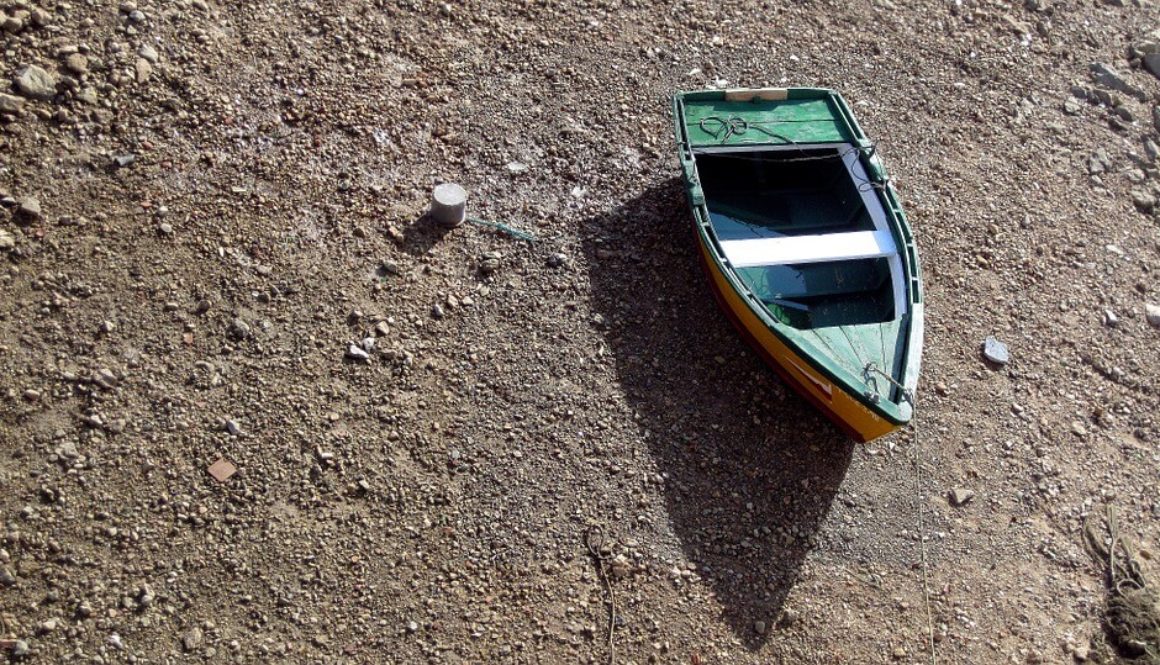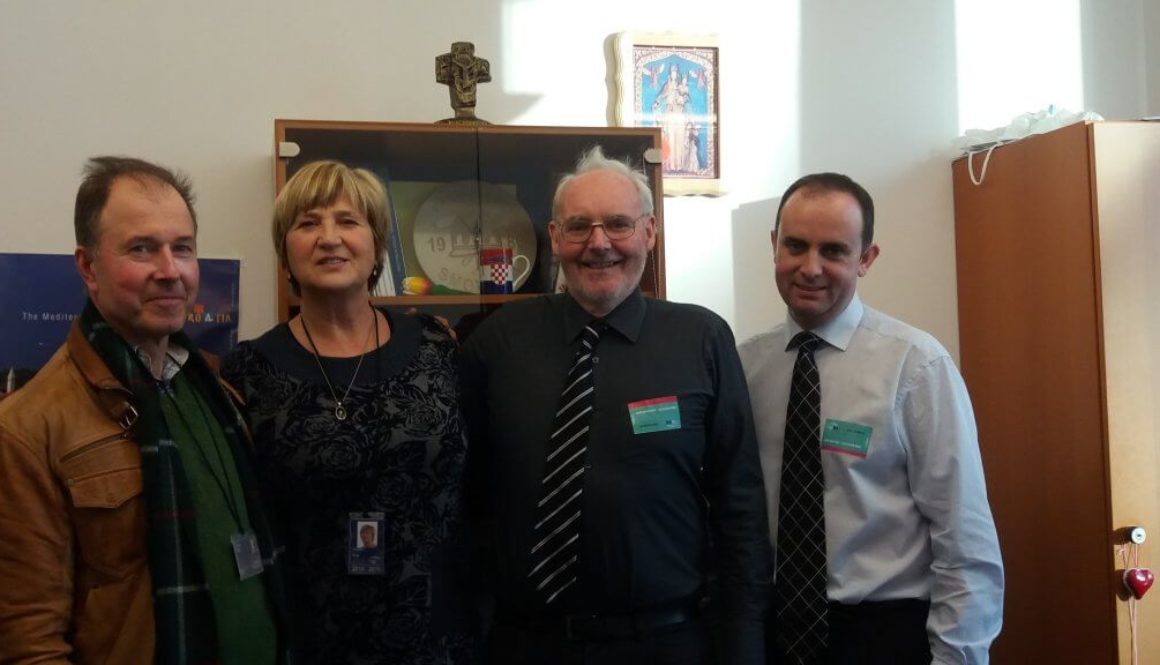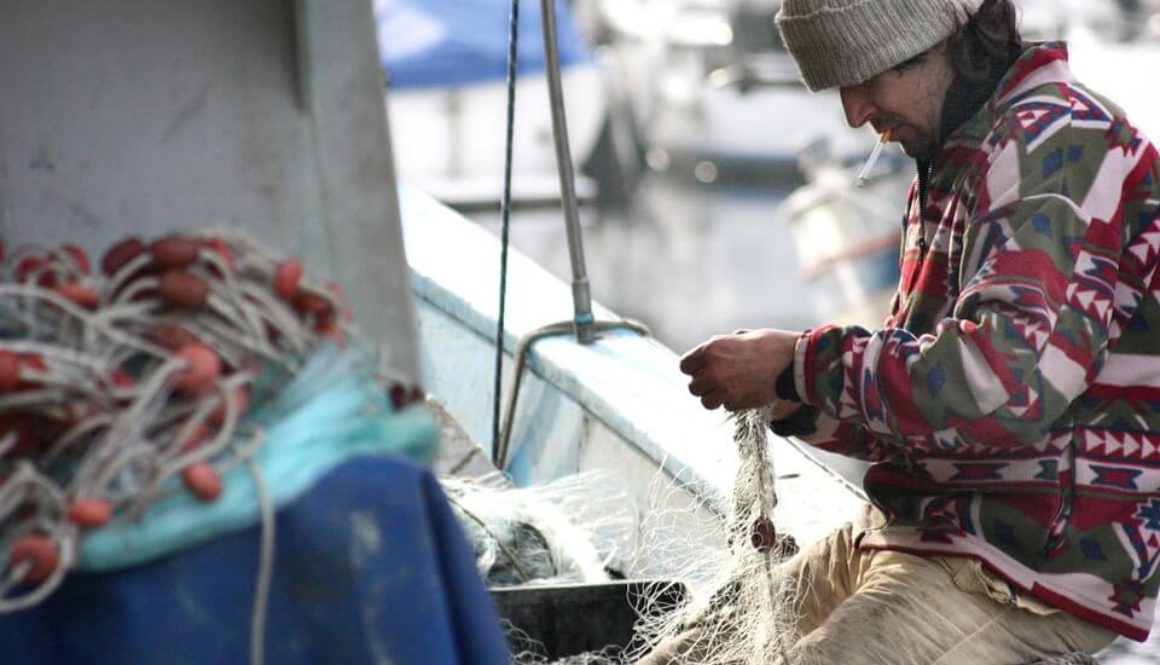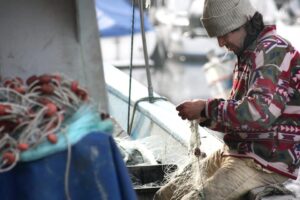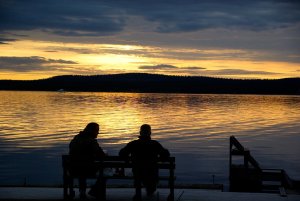
Nada sa sjevera u promjenjivim vremenima:
Novi oblici zajedničkog upravljanja omogućit će nam da nastavimo loviti ribu
i očuvati naše kulture
Tero Mustonen, Snowchange Cooperative
Član LIFE-a iz Finske
Ožujak 2017.
U globalnom trenutku neizvjesnosti moramo jamčiti održivost našeg ribarstva i nastavak naših specifičnih kulturnih tradicija i načina ribolova. S narativima propasti i tmurnosti treba se suočiti, pozabaviti se njima i iz njih učiti, ali ključno za opstanak europskog malog ribarstva bit će otkrivanje i provedba novog, vjerodostojnog i zdravog narativa o zajedničkom upravljanju.
Znamo za flote koćarica koje „pražne oceane“ i urušavaju zalihe ribe diljem planeta. Međutim, situacija u slatkovodnim ribarstvima sjeverne Europe, poput onih u Švedskoj i Finskoj, drugačija je. Jezera obiluju potencijalnim ulovom, ali ribari su ti koji postaju ugroženi. Također, klimatske promjene na sjeveru i Arktiku temeljni su pokretač promjene sustava koja utječe na ove krhke sjeverne vode – najstarija mreža na svijetu otkrivena je u Kareliji u Finskoj, što dokazuje da je ribarstvo tisućljećima bilo središnje za sjeverna društva.
Vodim ribarsku bazu Kesälahti, koja je dom svjetski poznatih zimskih ribarskih potegača marke Puruvesi (https://vimeo.com/174303297 ) – jezerski ribolov za razliku od mnogih drugih. Imamo atlantskog lososa bez izlaza na more, sajmanske prstenaste tuljane (vrlo ugrožene) i netaknuto jezero gdje možete piti vodu i vidjeti 15 metara dubine. Ponosni smo članovi Udruge ribara Europe s niskim utjecajem na okoliš (LIFE), jer samo zajedničkim radom možemo pronaći rješenja za izazove ovog stoljeća.
Međutim, Puruvesi je u nevolji.
Sjeverne klimatske promjene nas teško pogađaju. Siguran led, ključni uvjet za ribolov potjericama, često se pojavljuje početkom veljače, dok je prije dolazio sredinom studenog. Nestaje rano, čak i krajem ožujka, kada je uobičajeni "datum" bio 1.sv Svibanj. Mnogo je toplije i mnogo je vjetrovitije. Male ribeže uginu u proljeće zbog jakih vjetrova koji se ne smiruju za noć kao prije.
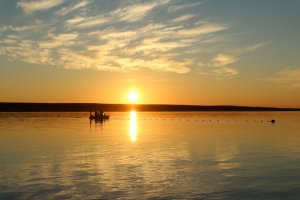 Također sam član još jedne organizacije, Zadruge Snowchange (www.snowchange.org ), dvadeset godina stara mreža sjevernih kulturnih, obrtničkih i profesionalnih ribarskih zajednica, kao i drugih tradicionalnih sjevernih gospodarstava, poput lovaca na tuljane, lovaca na tajgu i uzgajivača sobova. Razlog osnivanja Snowchangea bio je pronaći nove načine za preživljavanje klimatskih promjena i očuvanje naših tradicija i načina života netaknutima, u procesu promjene i prilagodbe njima.
Također sam član još jedne organizacije, Zadruge Snowchange (www.snowchange.org ), dvadeset godina stara mreža sjevernih kulturnih, obrtničkih i profesionalnih ribarskih zajednica, kao i drugih tradicionalnih sjevernih gospodarstava, poput lovaca na tuljane, lovaca na tajgu i uzgajivača sobova. Razlog osnivanja Snowchangea bio je pronaći nove načine za preživljavanje klimatskih promjena i očuvanje naših tradicija i načina života netaknutima, u procesu promjene i prilagodbe njima.
Tijekom dva desetljeća rada u Sibiru, Aljasci, Islandu, Grenlandu, Finskoj i drugdje otkrili smo da je ključno za promjenu koja nam je potrebna pitanje moći i odnosa moći. Moć u odlučivanju o raspodjeli resursa, moć u upravljanju i korištenju prirodnih resursa. Stoga smo pokrenuli niz inicijativa diljem regije kako bismo u praksi pokazali da je promjena moguća, i to nabolje – promjena koja jamči održivost našeg ribarstva i nastavak naših specifičnih kulturnih tradicija i načina ribolova.
U subarktičkom bazenu Näätämö, koji je dom i atlantskog lososa i tradicionalne autohtone ribarske kulture Skolt Sámija (http://bulletin.ids.ac.uk/idsbo/article/view/2830/ONLINE%20ARTICLE http://www.takepart.com/feature/2015/11/30/arctic-people-fight-back-against-climate-change) , implementirali smo kolaborativno upravljanje, ili skraćeno zajedničko upravljanje, kako bismo znanje Sami o ribolovu pozicionirali kao jednako vrijedno kao i znanost kada se bavimo pitanjima klimatskih promjena u slivnom području ovog bazena, tijekom proteklih sedam godina. Sami su otkrili nove vrste kukaca koje dolaze u bazen koristeći svoje tradicionalno znanje, otkrili mjesta izgubljenih mrijestilišta o kojima raspravljamo kako ih obnoviti i kako održati endemske sustave upravljanja ulovom - u vrijeme obilja lososa može se uloviti više, ali u vrijeme oskudice na snazi su samonametnute kvote kako bi se osiguralo da ljudi i ribe prežive.
U jednom od srednjih borealnih bazena rijeke Jukajoki, u mom vlastitom selu Selkie (http://casestudies.ourplaceonearth.org/Finland/ ), patimo od negativnih utjecaja prošlih načina korištenja zemljišta koji utječu na našu rijeku. Profesionalno lovimo ribu tamo na rijeci pomoću klopki za ribu. Od 2010. godine, kada su sve ribe uginule, pokrenuli smo najveću ekološku obnovu vođenu tradicionalnim znanjem i zajedničkim upravljanjem u regiji, s više od 2 milijuna eura potrošenih do sada na obnovu i znanost. Ribe se vraćaju.
Središnja tema modela Jukajoki je ideja da će ribari nastaviti održavati svoju kulturu, način života i surađivati s drugim dionicima kako bi rijeku Jukajoki vratili u stanište pastrve i lososa. Nedavno je odabrana kao 8.ti najbolji riječni projekt na svijetu, a mi u Snowchangeu osvojili smo prestižnu globalnu nagradu „Emerging River Professional“.
Ključno za sve navedeno je da ne poričemo promjenu.
Prihvaćamo to kao ribari i izlazimo kao predvodnici stvari koje moramo učiniti, zajedno.
Svaki ribar svugdje u svijetu može pozitivno doprinijeti svojim tradicionalnim
znanje o naporima praćenja promjena u okolišu mora, rijeka, jezera i drugih voda. U mnogim slučajevima na obalama, kao i na našim jezerima, ribari su tamo stoljećima i oni znati svoje vode. Stoga imaju, barem u nekim zajednicama i kontekstima, uobičajeno pravo na svoju ribu i svoje vode te pravo na sudjelovanje u njihovom upravljanju.
Stoga smo u Finskoj uveli prve strukture zajedničkog upravljanja i suvlasništva kako bismo pokazali da možemo upravljati, s državom i drugima, dok zajedno putujemo i navigiramo ovim stoljećem. Preživjet ćemo. Naše ribarske kulture će preživjeti. Možda su drugačije, ali promjena je oduvijek bila središnji element života s morima, jezerima i ribama.
U Puruvesiju smo također napredovali u povećanju vrijednosti naše ribe. Ribari su u prosincu 2013. dobili posebno priznanje za svoju ribu rikše i načine ribolova s oznakom zemljopisnog podrijetla EU (zaštićena oznaka izvornosti – PDO). Ova oznaka izvornosti također prepoznaje tradicionalne potegače i klopke za ribu kao jedine održive načine ulova, tj. u našem slučaju i dalje govorimo ne industrijskom koćarenju u Puruvesiju, koje će uništiti stokove i kulturu ako se to ovdje dogodi.
Vidjeli smo što uzrokuje pohlepa.
Također smo 2014. godine pokrenuli Festival sjevernih ribarskih tradicija, događaj za ribare od strane ribara (i – žena naravno!). Festival u Finskoj 2014. možete vidjeti ovdje:
https://ourworld.unu.edu/en/fishers-of-eurasian-arctic-come-together-in-a-time-of-war
i Festival u Sibiru 2016. ovdje:
http://www.snowchange.org/pages/wp-content/uploads/2016/09/Snowchange-11.pdf
i http://eloka-arctic.org/communities/russia/lowerkolymafisheries
Razgovaramo s LIFE-om o zajedničkoj organizaciji Festivala na Baltiku 2018. u Torniju, u rujnu 2018.!
Iako se ovi primjeri sa Sjevera na prvi pogled mogu činiti „dalekima“, oni su zapravo primjenjivi na gotovo sva područja u kojima LIFE ima članove, uz neke prilagodbe. Središnja točka ovih inicijativa su spoznaje da:
Preživjet ćemo: Promjene koje su u tijeku mogu se suočiti i riješiti održivom strategijom održavanja naših tradicija, znanja i iskustava u prvom planu dok procjenjujemo stvari koje trebamo učiniti drugačije kako bismo se prilagodili vrstama u pokretu, promjenjivom tržištu, novom vremenu i novim vodama.
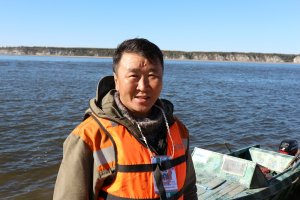 Očuvat ćemo naše kulture netaknutima: Mladi ljudi se bave ribolovom kada vide da je to održiv način života s pristojnim prihodima. Ako se probudimo i shvatimo da ribolov u kojem sudjeluju članovi LIFE-a zapravo potiče iz kultura s jedinstvenim načinima života, možda ćemo imati priliku. Možda ćemo morati raditi nove stvari, poput partnerstva s istraživačima, turizma, organizacija kulturne baštine, praćenja okoliša uz ribolov, ali što s tim? Već smo vidjeli sve te promjene i prije, i neka bude tako - kako se oceani mijenjaju, promijenimo se i mi I zadržimo najbolje od naših svjetova. Opraštanje od nekih stvari znači da ćemo imati više prostora za nove stvari u našim životima!
Očuvat ćemo naše kulture netaknutima: Mladi ljudi se bave ribolovom kada vide da je to održiv način života s pristojnim prihodima. Ako se probudimo i shvatimo da ribolov u kojem sudjeluju članovi LIFE-a zapravo potiče iz kultura s jedinstvenim načinima života, možda ćemo imati priliku. Možda ćemo morati raditi nove stvari, poput partnerstva s istraživačima, turizma, organizacija kulturne baštine, praćenja okoliša uz ribolov, ali što s tim? Već smo vidjeli sve te promjene i prije, i neka bude tako - kako se oceani mijenjaju, promijenimo se i mi I zadržimo najbolje od naših svjetova. Opraštanje od nekih stvari znači da ćemo imati više prostora za nove stvari u našim životima!
Mi smo pozitivna snaga s kojom se treba računati: Nitko više ne može sam. Zato smo se pridružili LIFE-u. Zato smo dobili zaštićenu oznaku porijekla za riču. Zato smo pokrenuli zajedničko upravljanje. Samo zajedničkim radom možemo uspjeti. Nećemo dobiti sve što želimo, ali imamo mjesto za stolom i glas koji možemo koristiti.
Led će se otopiti. Stari ribari će se povući. Bit će toplije stoljeće. Neke će vrste riba nestati. Ponekad će biti previše tuljana ili premalo ribe.
Ali mi, kao čuvari i nositelji znanja o europskim morima, jezerima, rijekama i obalama, preživjet ćemo, prehraniti ljude i obnoviti svoje obveze prema našim ribama i vodama, kao što smo to oduvijek činili.

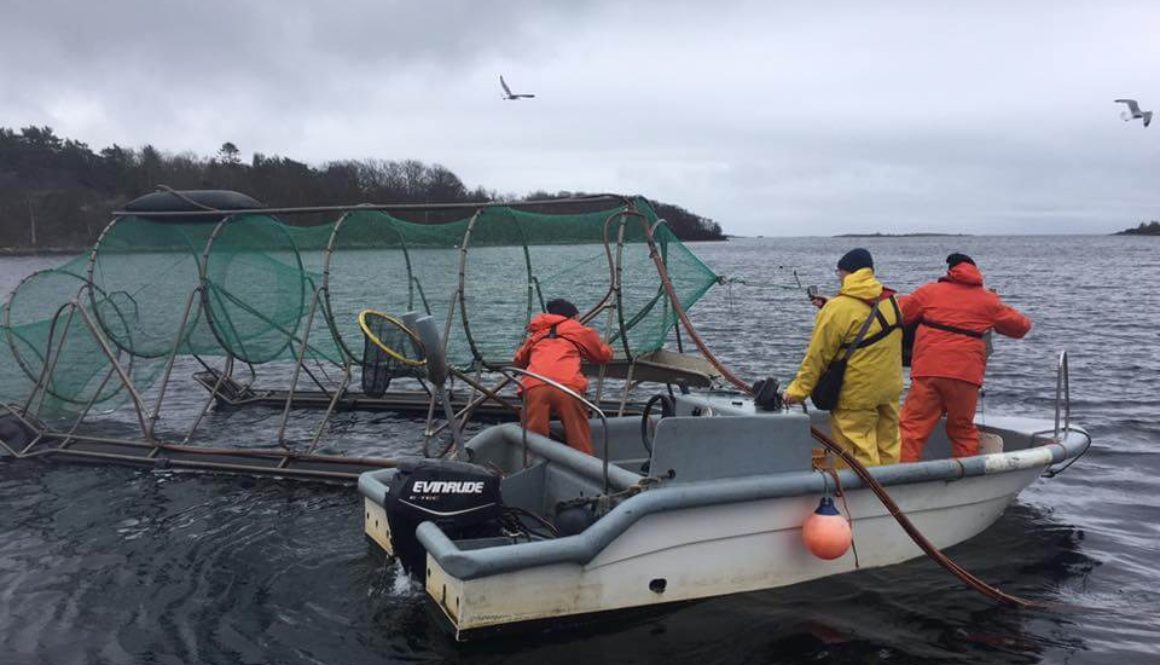
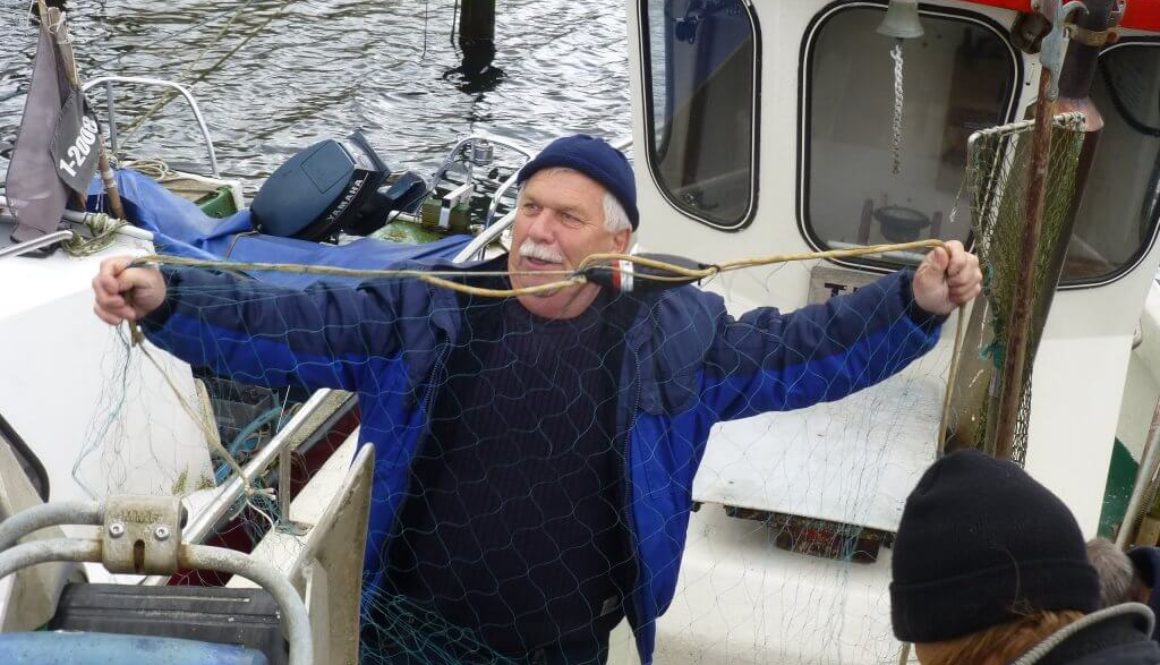
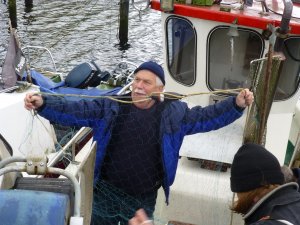
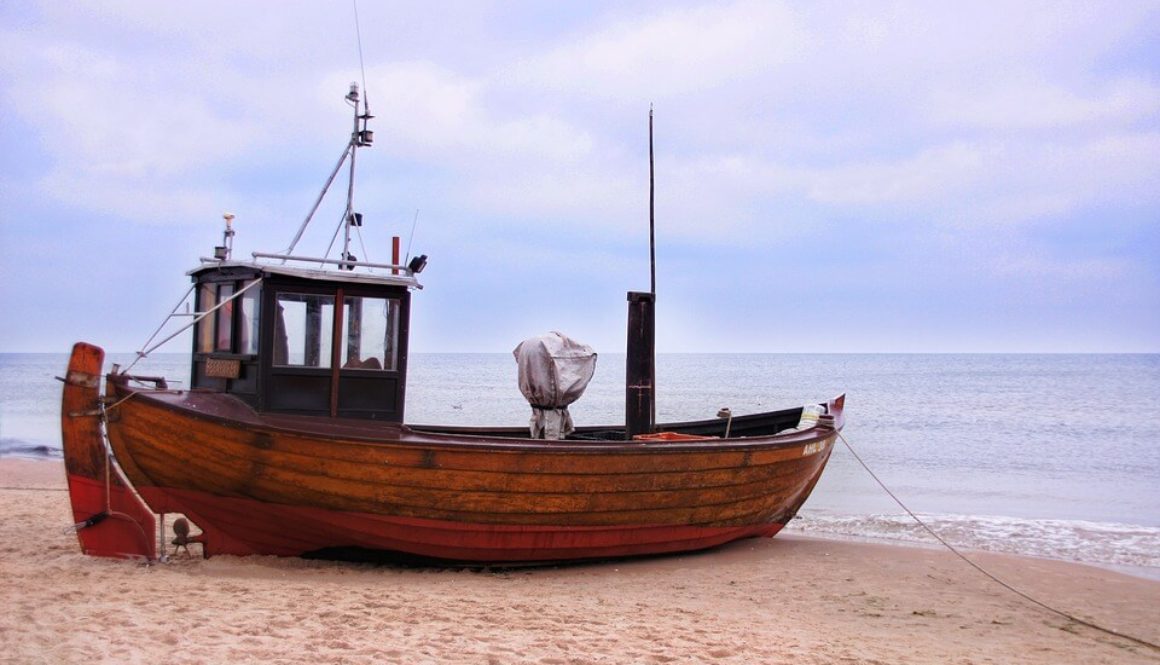
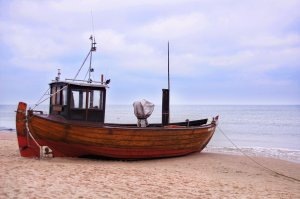
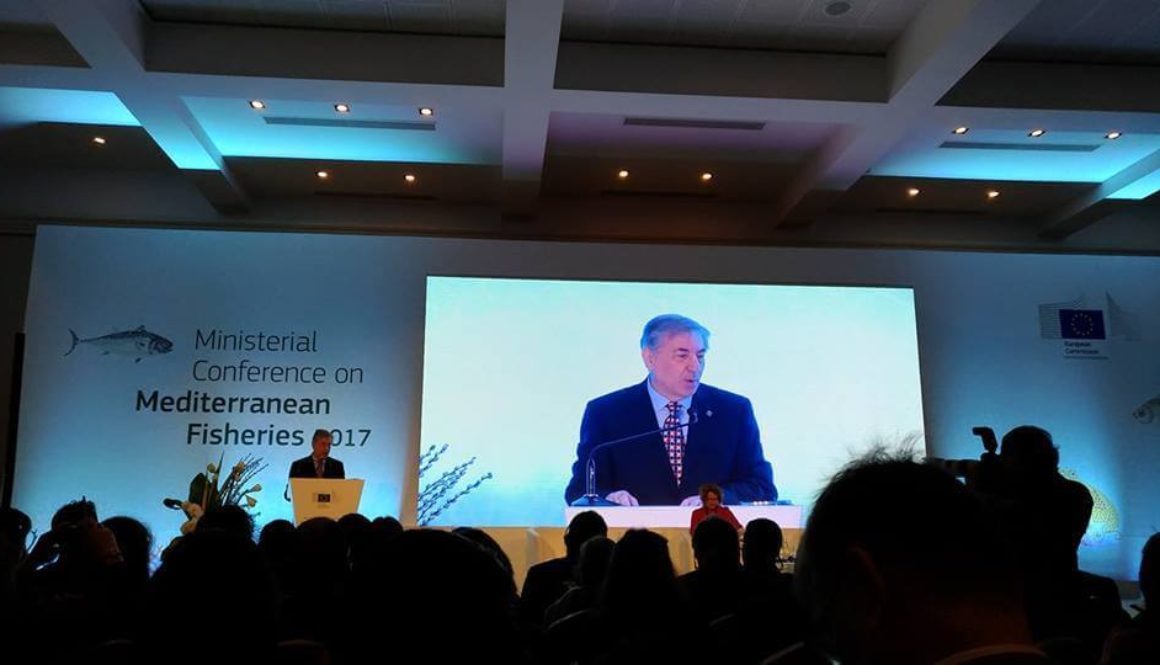
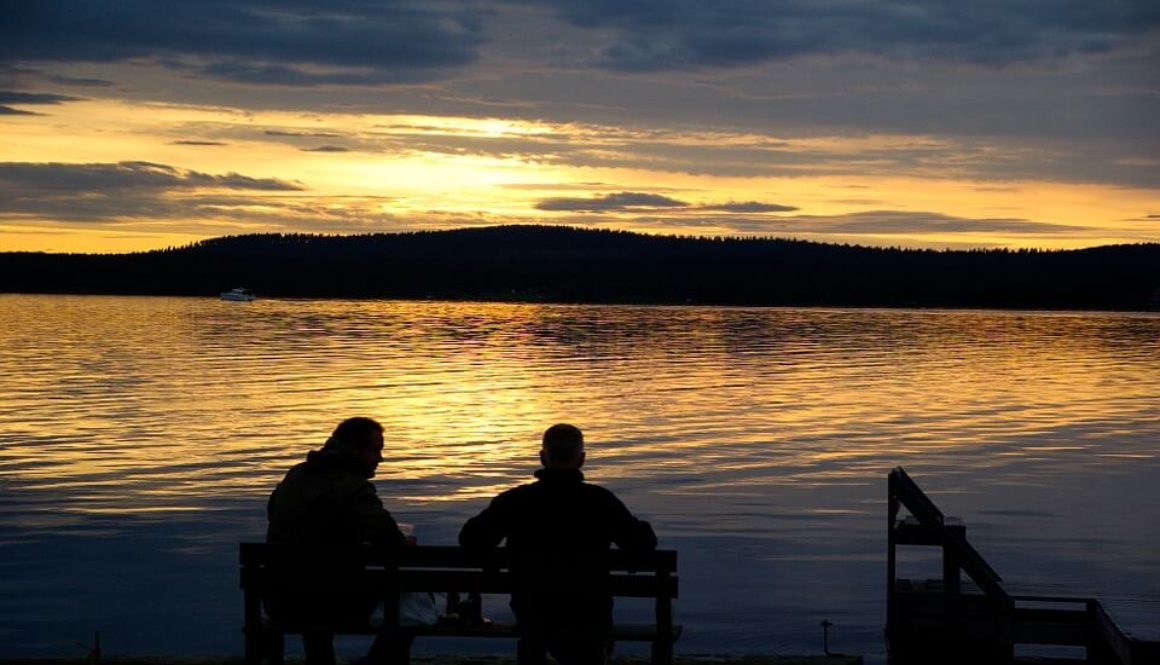

 Također sam član još jedne organizacije, Zadruge Snowchange (
Također sam član još jedne organizacije, Zadruge Snowchange ( Očuvat ćemo naše kulture netaknutima: Mladi ljudi se bave ribolovom kada vide da je to održiv način života s pristojnim prihodima. Ako se probudimo i shvatimo da ribolov u kojem sudjeluju članovi LIFE-a zapravo potiče iz kultura s jedinstvenim načinima života, možda ćemo imati priliku. Možda ćemo morati raditi nove stvari, poput partnerstva s istraživačima, turizma, organizacija kulturne baštine, praćenja okoliša uz ribolov, ali što s tim? Već smo vidjeli sve te promjene i prije, i neka bude tako - kako se oceani mijenjaju, promijenimo se i mi I zadržimo najbolje od naših svjetova. Opraštanje od nekih stvari znači da ćemo imati više prostora za nove stvari u našim životima!
Očuvat ćemo naše kulture netaknutima: Mladi ljudi se bave ribolovom kada vide da je to održiv način života s pristojnim prihodima. Ako se probudimo i shvatimo da ribolov u kojem sudjeluju članovi LIFE-a zapravo potiče iz kultura s jedinstvenim načinima života, možda ćemo imati priliku. Možda ćemo morati raditi nove stvari, poput partnerstva s istraživačima, turizma, organizacija kulturne baštine, praćenja okoliša uz ribolov, ali što s tim? Već smo vidjeli sve te promjene i prije, i neka bude tako - kako se oceani mijenjaju, promijenimo se i mi I zadržimo najbolje od naših svjetova. Opraštanje od nekih stvari znači da ćemo imati više prostora za nove stvari u našim životima!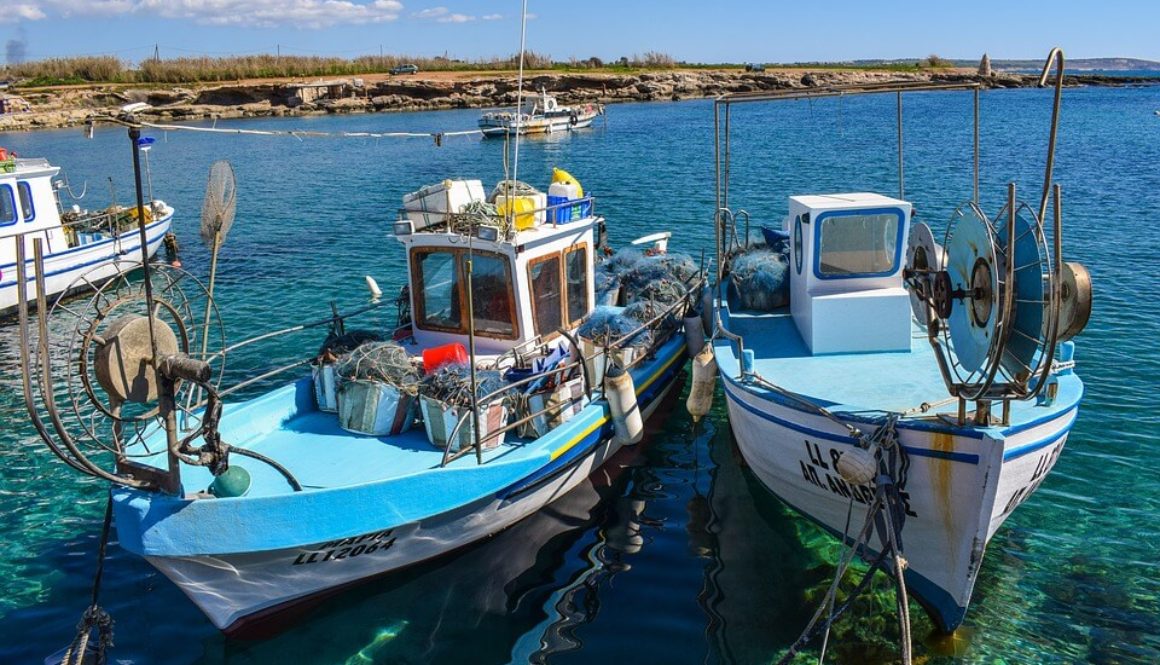
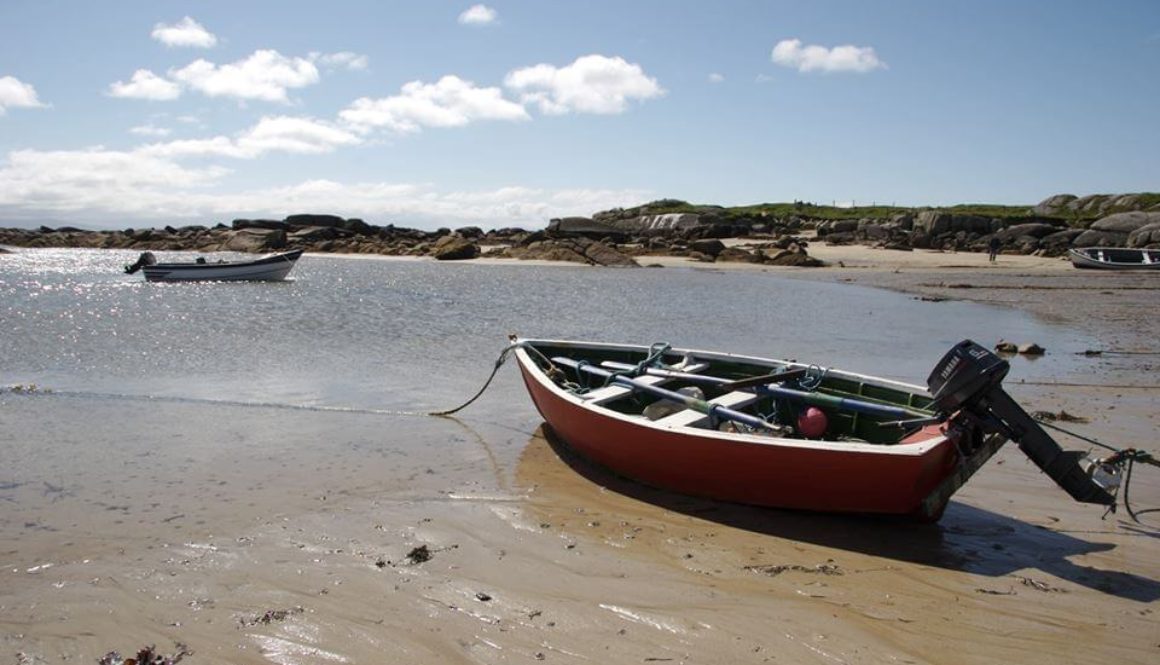
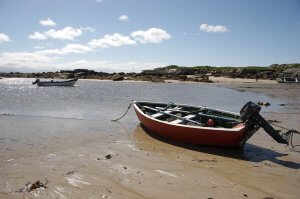
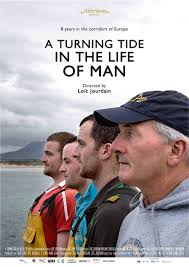 Film „Preokret u životu čovjeka“ Loica Jourdaina, koji je nedavno u Europskom parlamentu prikazala udruga ribara s niskim utjecajem na okoliš (LIFE) u partnerstvu s zastupnicom u Europskom parlamentu Marian Harkin, istaknuo je da opstanak otočne zajednice žrtvuju se interesima širih razmjera europskim i nacionalnim politikama koji su slijepi na potrebe većine europskih građana. Također je pokazalo kako nacionalne vlasti često igraju ciničnu igru okrivljavanja s „Bruxellesom“, okrivljujući europske politike i loše definirane agente Bruxellesa za pogrešne odluke koje su sami donijeli.
Film „Preokret u životu čovjeka“ Loica Jourdaina, koji je nedavno u Europskom parlamentu prikazala udruga ribara s niskim utjecajem na okoliš (LIFE) u partnerstvu s zastupnicom u Europskom parlamentu Marian Harkin, istaknuo je da opstanak otočne zajednice žrtvuju se interesima širih razmjera europskim i nacionalnim politikama koji su slijepi na potrebe većine europskih građana. Također je pokazalo kako nacionalne vlasti često igraju ciničnu igru okrivljavanja s „Bruxellesom“, okrivljujući europske politike i loše definirane agente Bruxellesa za pogrešne odluke koje su sami donijeli.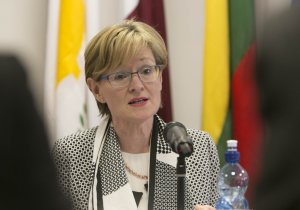 Nakon projekcije filma, Mairead McGuinness, potpredsjednica Europske
Nakon projekcije filma, Mairead McGuinness, potpredsjednica Europske